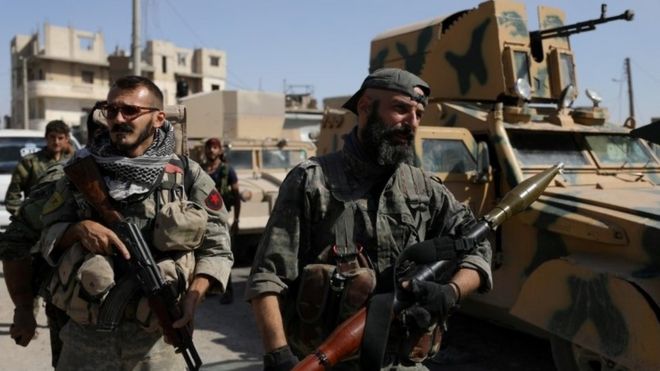Article Link
On Tuesday evening we had the pleasure to watch President Trump give us an overview of what he planned to do over the next year. In his foreign policy segment, he went over common topics many Americans are familiar with including the Israel-Palestinian conflict. His managed to brag about the military campaign against ISIS. However he neglected the other political issues occurring in the world.
Trump mentioned the Russia-China conflict with the US, which is considered one of America's highest priorities, only once. Earlier this month, Secretary of Defense, Jim Mattis clearly declared that, Great power, like Russia and China are our main threats, not terrorism. However Trump's disregard to the subject shows his naivety of presidency. He scarcely mentioned it before continuing on to gloat about all he has accomplished in the past year. This is due to the fact that he did not want to badmouth Beijing on such an international level, however a little more in-depth explanation of his plans would have been satisfying for the Americans.
Trump also omitted to disclose details on the wars in Afghanistan and Syria, in which the US has been getting deeper involved in. He did not mention as to why he has sent so many troops to Syria in the past year nor did he explain the motive behind bombing Afghanistan three times as much than in 2016. As a candidate he promised to not involve the US in any more wars, however he is doing the exact opposite as a president.
Newer conflicts such as the involvement in the Yemen wars were also not touched upon. Trump did not give his reasons as to why he has aligned with Saudi Arabia and is now sending troops there in fight brutally with the Yemenis. This war has cost a lot for both the US and especially the Yemenis as 20,000+ civilians do not even have basic needs, such as water and food. In this harsh war, many US troops also died and Trump gave no reason as to why the cost of these lives was necessary.
Lastly, Trump overlooked the morals of which America was built upon. He did not indicate what America stands for in the world. Both President Obama and President Bush gave reassuring statements about how they see America with the rest of the world and how they want to create peace and freedom. Overall Trump may have wanted to make his speech seem like it was more for the people of the United States however he neglected the ideology of America's foundation.
Discussion Questions:
1. Did Trump talk sufficiently about foreign policies and the ideas that the US has for the next year? Why or why not?
2. Is the addition of more troops to wars that were hardly mentioned in his speech justified? Should the public be notified of the sending of troops to other countries? Why or why not?
3. Should the American people be satisfied with the amount of information that was presented in his speech? Should Americans be more informed on foreign policies? Why or why not?














